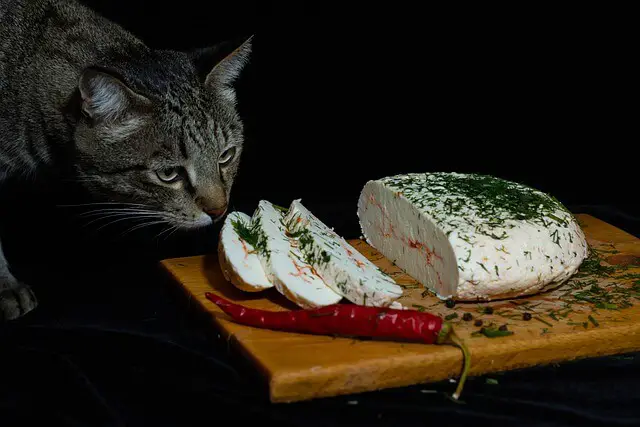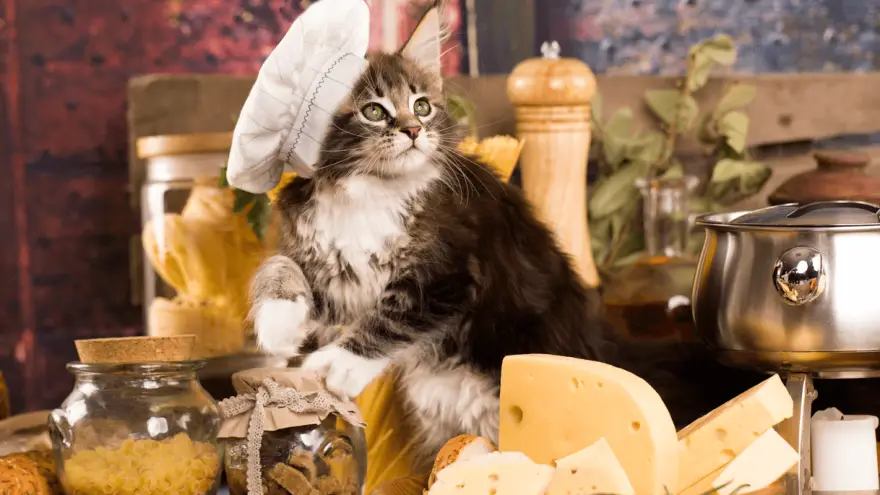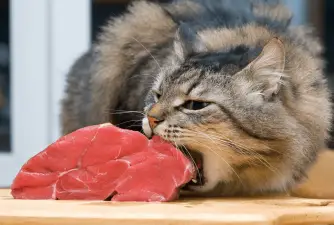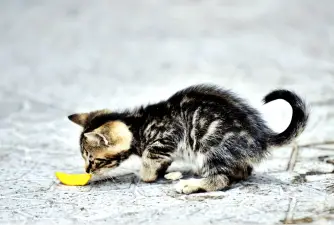Can Cats Eat Cheese? Here's What Your Vet Might Say
03.01.2022.
If you’re anything like us, you love cheese. Many cat owners notice how their cats look at them while they eat cheese, and it makes us wonder, “Can cats eat cheese?” The good news is that there are some instances where it might be safe to give your cat a small amount of cheese. As general advice, it would be best to talk to your vet and see if cheese is a good option for your cat. In the meantime, here’s what you should know about cats and cheese.
Is cheese safe for cats?
Many cat owners have an image that cats drink milk and enjoy that. That might be true, but many cats are lactose intolerant. However, generally speaking, cheese is safe for cats. You need to keep the cheesy portions small and not let your cat stuff its face on cheese. It is entirely possible that you have a cat that is lactose intolerant or even has dairy allergies.
Even if your cat can eat cheese without any issues, you should know that cheese is still not the best option for cats. Most cheeses are salty and fat, which makes them somewhat unhealthy. Your cat will not get any health benefits from it. If you don’t have to, you shouldn’t feed your cat cheese.

How can I know if my cat is allergic to dairy?
Unfortunately, most cat owners learn their cats are allergic to dairy once they give them some milk or cheese. Despite what many people think, cats don’t need milk in their diet. You should know which symptoms to look for if you think your cat might have dairy allergies. The most common symptoms are;
- Head shaking
- Scratching
- Skin redness
- Coughing
- Sneezing
- Wheezing
- Vomiting
- Diarrhea
- Gas and bloating
If you notice any of these symptoms in your cat, stop giving it cheese immediately, and make sure you call your vet for further advice.
Lactose intolerance in cats
Cats and dogs can be lactose intolerant. In fact, most adult cats are. If that is the case with your cat, the cheese will not be a viable option. If your cat somehow manages to get its paws on some cheese, chances are its digestive system will get very upset. Some of the things you might expect to see are;
- Gassiness
- Diarrhea
- Vomiting
- Stomach pain
- Constipation
Can kittens eat cheese?
There is a lot of difference between adult cats and kittens. One of the main differences in consuming cheese and dairy is the production of the necessary enzyme that allows cats or kittens to digest lactose. Kittens have plenty of that protein because their diet is based on their mother’s milk. If they didn’t have that enzyme, their survival would come into question. However, cheese is still not something you should give your kitten. By the time the kitten can eat solid food, the lactase enzyme production is significantly reduced. In fact, it might be gone, and the kitten might be lactose intolerant.
VET TIP: If you are absolutely adamant about giving your cat some cheese, you should start with a tiny amount. Test the way your cat will react to cheese, and only then can you decide if you want to proceed with giving them cheese.
How can I safely give cheese to my cat?
Even though cheese is not the best option for cats, some owners want to give them this “special” treat. There is a way you can do it safely, and the critical thing to remember is - portion control. Keep the piece of cheese you give to your cat small and make sure they don’t overeat.
Give your cat a tiny amount and see how they react. One “trick” experienced cat owners have is to give cheese to their cats when they have to take a pill. It makes the drug go down smoother, and the cat will gladly take it.
What are safe cheeses?
The exact type of cheese will also play a part. Not all types of cheeses are safe for cats, and you should know which types your cat could safely eat. Some of the safe cheeses you can give to your cat are;
- Cheddar
- Swiss
- Gouda
- Cream cheese
- Mozzarella
- String cheese
- Feta
- Cottage cheese
- Parmesan
Some of the cheeses you should avoid are;
- Brie
- Blue cheese
- Camembert
- American cheese
World Cat Finder Team







Share